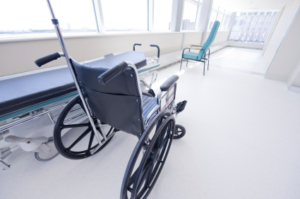PA to Help Medicaid Beneficiaries Who Want to Work
While Pennsylvania does not have a mandatory work requirement for its Medicaid population, the state is taking a new approach to encouraging Medicaid beneficiaries to pursue work.
It is asking them if they want to work and then, if they say they do, directing them to help finding training an jobs.
 As reported by Kaiser Health News,
As reported by Kaiser Health News,
Starting early next year, the Pennsylvania Medicaid agency under Democratic Gov. Tom Wolf will ask people when they enroll if they want job training assistance. It will then require its private Medicaid managed-care organizations to connect those who want help to local employment specialists and follow up to make sure they got it.
The Wolf administration has resisted legislative efforts to impose a work requirement on the state’s Medicaid population, with the governor twice vetoing legislation that would establish such a mandate. The legislature is expected to take up a similar bill next year because, as one of the bill’s co-sponsors explained, “What they are suggesting is a tiny step in the right direction, but we need to do so much more.”
Learn more in the Kaiser Health News story “States Try A Gentler Approach To Getting Medicaid Enrollees To Work.”
 The Department of Human Services bulletin outlines the purpose of the new PDL, provides background information, and describes how the PDL was developed and will work. In addition, it lists the past Medical Assistance Bulletins rendered obsolete by the new bulletin and describes the prior authorization procedures that will be employed when the new program takes effect on January 1, 2020.
The Department of Human Services bulletin outlines the purpose of the new PDL, provides background information, and describes how the PDL was developed and will work. In addition, it lists the past Medical Assistance Bulletins rendered obsolete by the new bulletin and describes the prior authorization procedures that will be employed when the new program takes effect on January 1, 2020. Included in this month’s edition are articles about:
Included in this month’s edition are articles about: Earlier this year, the Department of Human Services announced its intention to implement a preferred drug list in the state’s Medicaid program. That PDL would apply to both the fee for service and managed care Medicaid programs.
Earlier this year, the Department of Human Services announced its intention to implement a preferred drug list in the state’s Medicaid program. That PDL would apply to both the fee for service and managed care Medicaid programs. Today, Lyft is working with approximately 35 state Medicaid programs while Uber, at least so far, participates only in Arizona’s program.
Today, Lyft is working with approximately 35 state Medicaid programs while Uber, at least so far, participates only in Arizona’s program. In the message, SNAP notes the important role Medicaid DSH payments play in helping private safety-net hospitals care for the many uninsured patients who continue to turn to them for care.
In the message, SNAP notes the important role Medicaid DSH payments play in helping private safety-net hospitals care for the many uninsured patients who continue to turn to them for care. While observers warn that it is difficult to attempt to render a final verdict on the reform law’s insurance expansion and its impact, various studies and observations point to encouraging developments. Among them:
While observers warn that it is difficult to attempt to render a final verdict on the reform law’s insurance expansion and its impact, various studies and observations point to encouraging developments. Among them: